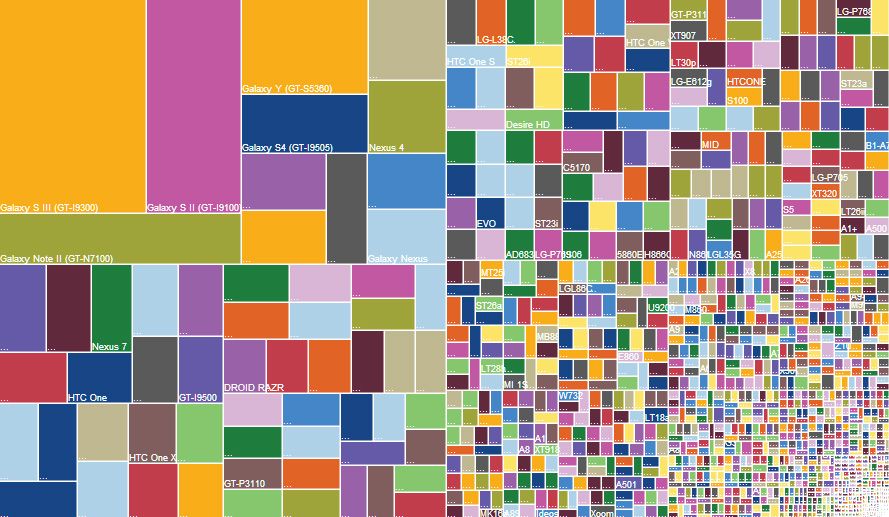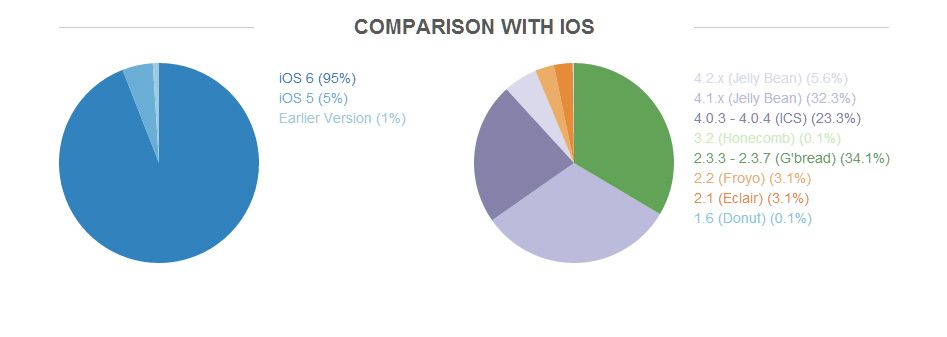OpenSignal has published its latest report on the fragmentation of the Android ecosystem and it has found that not only is the operating system still as diverse as ever in the number of devices, screen sizes and versions of the OS used, it's also actually increasing. That's great news for customer choice, but could be less so for app developers who endeavour to ensure their games and software work across as many smartphones and tablets as possible.
Samsung remains the number one manufacturer in the Android-sphere. Of the 11,868 different Android devices registering as being used between July 2012 and July 2013, most users favour those made by the Korean manufacturer. According to OpenSignal's statistics, Samsung holds 47.5 per cent of the Android market.
Sony takes second spot with 6.5 per cent, which shows just how dominant Samsung is. It's essentially why, whenever a new application is launched for Android, you find that Samsung's most popular phones are the first to be guaranteed as compatible.
Worryingly for those trying to eliminate such fragmentation across the ecosystem, the posted stats show that it is still a struggle to get the vast majority of device owners to upgrade to the latest version of Android. This could be down to incompatibility - with many older/cheaper handsets and tablets still is wide use - but while the most popularly used OS is Jelly Bean (Android 4.1.x - 4.2.x) installed on 37.9 per cent of devices, it is still followed closely by Gingerbread (Android 2.3.3 - 2.3.7) at 34.1 per cent.
OpenSignal includes a pie chart comparison with iOS, and that shows that a staggering 95 per cent of iPhone and iPad users are on the latest version, iOS 6.
However, while Android device and operating system fragmentation is on the increase, OpenSignal claims that an open platform is no bad thing. "Device fragmentation is increasing, and with it the reach and density of the Android operating system. While fragmentation certainly poses a headache to developers who have to test and optimise on an ever-increasing number of devices, the success of the of the Android ecosystem cannot be separated from its fragmented, free-for-all, nature," it writes in its report.
It's certainly not stopped apps from appearing on Google Play. The software giant recently revealed that over one million applications are now available on its store, with 50 billion downloads to date.


